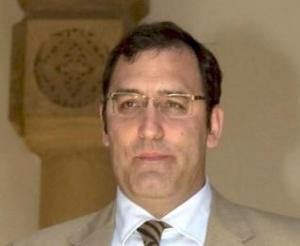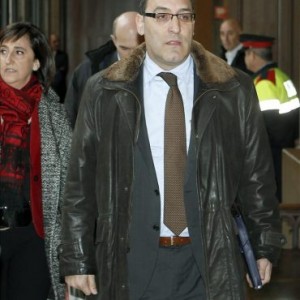
Spanish court rejects allegation that Oswaldo Payá was murdered
Judge Eloy Velasco dismisses lawsuit by family of Cuban dissident and points to Carromero’s record of traffic violations
Europa Press via Publico.es
National Court Judge Eloy Velasco [on Monday] threw out a lawsuit submitted by the family of Cuban dissident Oswaldo Payá against two Cuban Army officers whom they accused of crimes against humanity.

Velasco said that the new testimony offered by Ángel Carromero, a leader of the New Generations branch of the Popular Party of Madrid, which alleged a chase that resulted in the traffic accident, “cannot be verified.”
In a decision released Sept. 23, Velasco recalls that the sentence issued in Cuba “has been the subject of explicit recognition by the Spanish government,” and by the defendant himself, i.e., Carromero.
The magistrate also rejects the competence of the Spanish courts to investigate the death of Payá, who died in a traffic accident on July 22, 2012, along with Harold Cepero, a member of the coordinating council of the Christian Liberation Movement (MLC), when the vehicle being driven by Carromero suffered the accident.
“The assumption that the Spanish courts have jurisdiction to review the case and re-try it is abusive,” Velasco wrote.
The magistrate asserts that [Carromero’s] acceptance of the sentence “totally eliminates the existence of an assassination committed as the consequence of the persecution of a group” and recalls that the fourth passenger in the smashed car, Aaron Modig of Sweden, “was asleep at the time.”
“Nobody alerted him or woke him up, even though Carromero alleges that they were being chased,” says the judge, pointing out that the leader of New Generations has, with regard to traffic, “administrative records in Spain that led to the loss of his authorization to drive.”
The lawsuit named as defendants Lieut. Col. Águilas, chief of Crime Investigation for the Cuban State Security, a Col. Llanes and any other persons that the National Court could consider as “participants” in “the crimes that culminated” in the deaths of Payá and Cepero.
The family claimed that the investigation was “necessary” and “indispensable as a basic questioning of Justice,” because the Cuban regime could not continue “to persecute, mistreat, lie, murder and intimidate a society with impunity, as if it were the absolute owner of the lives of millions of people.”
By his decision, Velasco agrees to the opinion submitted by the National Court’s Office of the Prosecution, which opposed a re-trial and ruled out the existence of a crime subject to universal jurisdiction, because “the allegations made in the lawsuit do not imply a mass attack on the civilian population or against a large group of [civilians] and is neither generalized, nor systematic, nor done on purpose with the intention of committing political persecution.”

